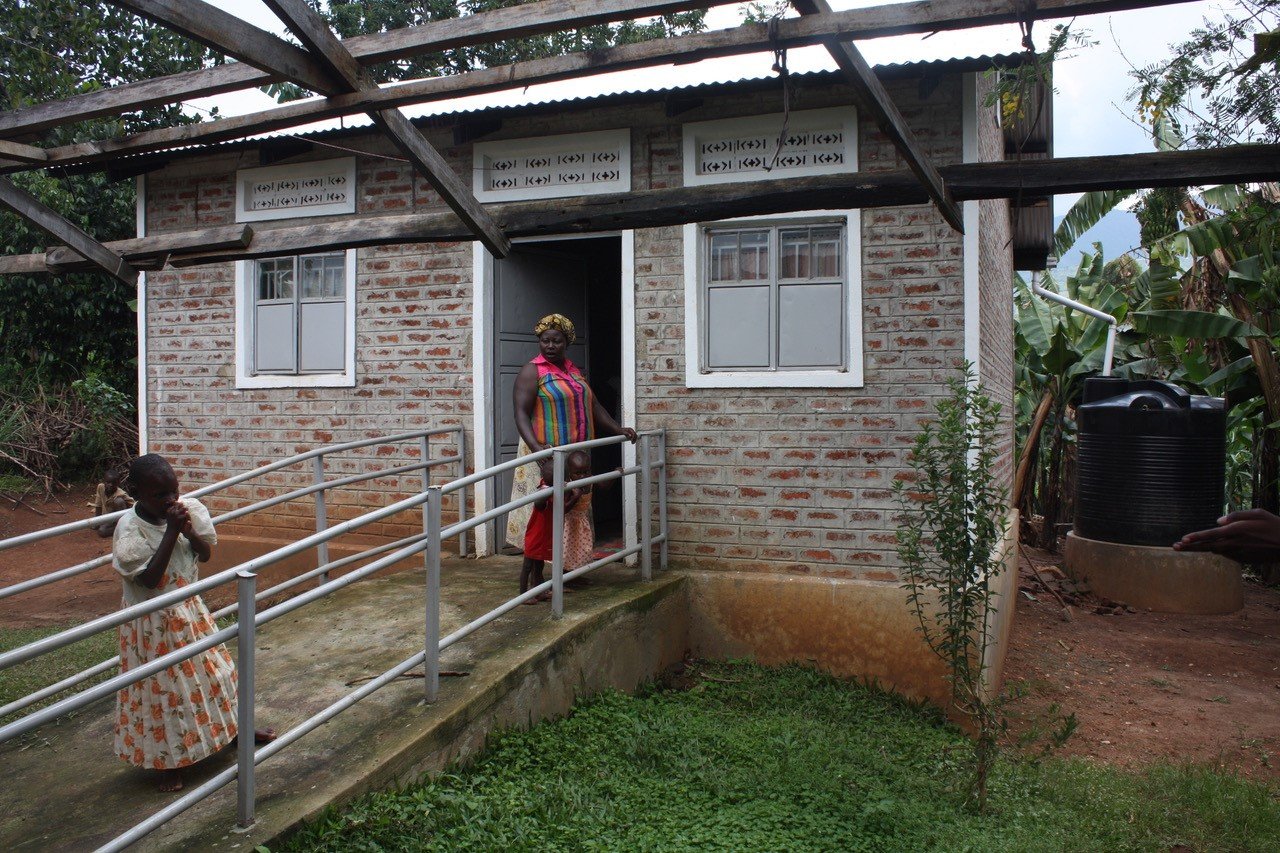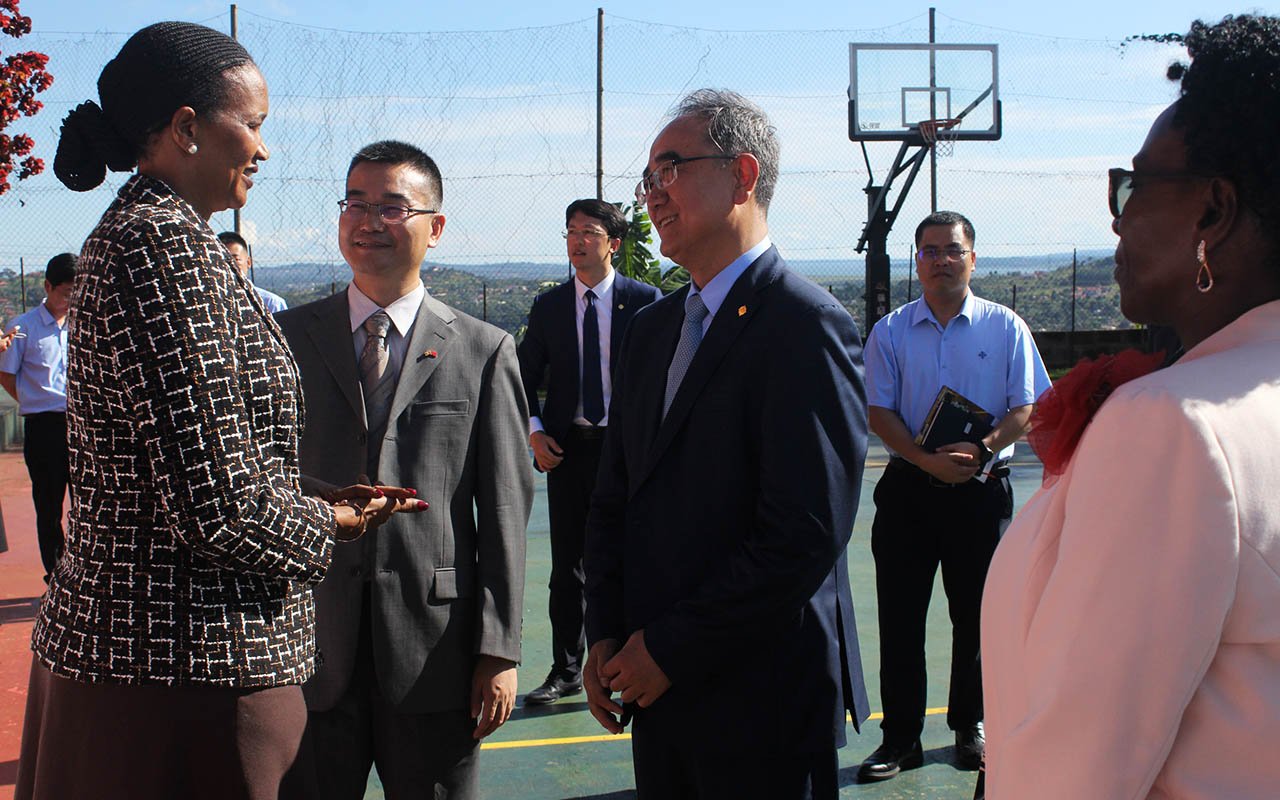Uganda facing 2.4 million housing deficit - report

Ms Immaculate Banura of Kasaliza Village in Mugusu Town Council and her children. The family has been living in the house since July 2019. PHOTO/FELIX BASIIME
What you need to know:
- The deficit stands at 2.4 million housing units, of which 210,000 units are in urban areas and 1.395 million units in rural areas. About 900,000 housing units in the country are below standard.
- Uganda’s housing situation is characterized by inadequate homes in terms of quality and quantity in both rural and urban areas.
Ms Beatrice Kayombya, 45, is happily living in her new house in Kyabakazi, Mugusu Town Council in Kabarole District, about 10km west of Fort Portal City.
She is a single mother of eight children. Her husband disappeared six years ago after she gave birth to a disabled child.
“After I gave birth to this child, my husband said he can’t produce such a child and he disappeared since then,” Ms Kayombya narrates in sorrow.
Her husband left her in a small grass-thatched house, where she stayed with eight children.
“I suffered a lot to raise these children alone, without income, no food and in a bad house, only good Samaritans would help me, it would rain on me in a rain season like now (October) because my roof was leaking,” she recounts.
She added: “But now I am so happy living in a new house that Habitat for Humanity built for me freely, I don’t work but at least I have shelter.”
Her Shs25 million permanent house is a few metres from her old house and it is among the 16 units that Habitat for Hu-manity Uganda has built around Fort Portal.
However, these are only a few women among the millions, who do not have a place to call home or live in substandard housing units.
As Uganda joins the rest of the globe to celebrate World Habitat Day, experts say the housing deficit in Uganda needs urgent attention from government.
Although Uganda Bureau of Statistics puts the deficit at 2.1 million, experts estimate the number could be about 2.4 million.
Mr Robert Otim, the National Director of Habitat for Humanity Uganda, said about 60 per cent of the population do not have adequate housing.
“About 12 million people have no place to call home while 24 million are living in substandard homes,” Mr Otim said. He added that the housing deficit continues to double every year.
“Through cheap mortgages, the government should be able to provide cheap and affordable houses,” he said.
SDG II
The housing project is in line with SDG II (Sustainable Development Goal II), which recognises the need to make cities and human settlements inclusive, safe, resilient and sustainable.
“By 2030, ensure access for all to adequate safe and affordable housing, basic services and upgrade of slums. Integrated hous-ing frameworks support economic, social and environmental policy planning and infrastructure linkages across the urban-rural ecosystem and building increased resiliency,” the SDG states.
Ms Brendah Luyiga, the resource mobilisation and communications specialist at Habitat for Humanity Uganda, said each unit costs Shs20m to Shs25m depending on the location.
Each unit has two bedrooms, one sitting room, a store, a 3,000 litre water tank for rain harvesting and a latrine with a nearby bathroom, all permanent structures. All the units have easy access and rails for persons living with disabilities because all the beneficiaries are either parents or guardians of disabled children.
Ms Annette Birungi, who is also a beneficiary of the project, lives in Kijongo Village in Burungu Parish in Mugusu Town Council. Her house is, however, still under construction. She has two disabled children.
Ms Immaculate Banura of Kasaliza Village in Mugusu Town Council is living in a complete house since July 2019.
Ms Luyiga says: “To date, houses built in Fort Portal are 16. Of these, 10 are complete and occupied and six are still under construction.”
She added that Habitat for Humanity Uganda has built more than 40,000 houses in 20 districts, including Kumi, Mayuge and Kiryadongo.
“Marking in commemoration of this year’s World Habitat Day under the theme: Housing for all: A better Urban future, we are promoting a decent living campaign, an initiative aimed at improving the lives of vulnerable communities in Uganda by seeking the support of corporate partnerships and the goodwill of well-wishers,” Ms Luyiga added.
Habitat for Humanity Uganda is a Christian Housing ministry which builds houses for people in need.
Mr David Rwamwaro, the chairperson of Mugusu Town Council, said: “This project has not only helped in social develop-ment like solving the housing problem of the vulnerable children but also created employment opportunities in our town council through construction works and supplies of materials.”
The United Nations designated the first Monday of October of each year as World Habitat Day to reflect on the state of towns and cities, and on the basic right of all to adequate shelter.
The day is also intended to remind the world that we all have the power and responsibility to shape the future of our cities and towns.




